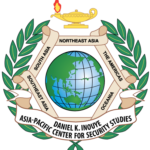By: Hassan Amir (CA 17-1 SSD in the Indian Ocean WS)
Maldives reported its first confirmed case of COVID-19 on Mar. 7, when foreign tourists who had been vacationing in Maldives became symptomatic. Since the initial case was reported, we have had 19 confirmed cases by Apr. 5. This includes three locals who had been under quarantine upon returning from United Kingdom. There have not been any COVID-19 related deaths, and 13 patients have fully recovered.
With the initial outbreak of COVID-19 in Wuhan, China, Maldives started taking decisive steps to prepare for the public health crisis. The Ministry of Health convened the multi-agency Health Emergency Coordinating Committee (HECC) and a Technical Advisory Group (TAG) comprised of health professionals to advise the government on necessary preventive and mitigation measures. In early March, the National Disaster Management Authority (NDMA) took over coordinating the whole of government effort. A COVID-19 National Emergency Centre (NEOC) was established, and national agencies engaged in public health, logistical support, tourism, law enforcement and local governance are fully engaged in executing inter-agency plans.
Despite the economic impact of imposing travel restrictions, Maldives banned all arrivals from China starting Feb. 4. Since then, there has been travel restrictions imposed on arrivals from other countries as the situation unfolded in Europe and elsewhere. Starting from Mar. 27, issue of on-arrival visa was suspended. At present, only essential flights are allowed to land, and locals returning to Maldives are placed under quarantine.
The national effort undertaken by the NEOC against the spread of COVID-19 at present can be broadly divided into four major lines of effort (LoE). They are (1) Information Management, Public Messaging and Risk Communication, (2) Health Response, (3) Community Support Operations and (4) Law Enforcement Operations. Public information on infection prevention and control, hygiene and procedures for reporting of cases and preventive and control measures are centrally coordinated through the NEOC, and disseminated through the government COVID-19 spokesperson, and on social media and other public messaging platforms.
Health response broadly covers the actions of the Rapid Response Teams dispatched to collect samples or isolate symptomatic cases once a call is received at the central COVID-19 call center. Testing of samples is also a core function within the health response and effort is underway to increase testing capacity.
Management of isolation and quarantine facilities is a key function within the health LoE. At present there are over 900 persons under quarantine on various resort islands. The majority of cases under quarantine are locals who had returned from foreign countries and high-risk areas. A composite team of personnel from the health sector, Ministry of Tourism, Maldives Police Service and Maldives National Defence Force are operating at each quarantine facility.
A major focus is placed on the establishment of emergency medical facilities and Intensive Care Units all across Maldives to house COVID-19 patients in the event of communal transmission. The center of gravity in mounting an effective health response and keeping death rates low lies in the ability to provide hospitalized care for severe cases through an urgent surge in health capacity. Action is being taken to source Personal Protective Equipment (PPEs) for front line responders and medical personnel and bring in equipment such as ventilators for COVID-19 hospital units currently being established across Maldives. The Ministry of Health is leading the effort of mobilizing all available health professionals, prioritizing required areas of expertise and conducting intensive training for ICU care.
Community Support Operations are primarily led by the City and Island Councils. These operations are designed to sustain individual households that are placed under quarantine and to facilitate the provision of essential services to the community in case of wider lockdowns. Community Support Operation broadly covers provision of food, utility services, psycho-social support, sanitation and waste disposal and addressing medical emergencies not related to COVID-19.
While the geographic disposition of Maldives favors containment of individual islands and atolls, the capital Male’ and surrounding urban areas are of particular concern. The Greater Male’ Area houses almost 1/3 of the entire population of Maldives, and Male’ is one of the most densely populated cities. An approximate 270,000 persons, including expatriate and undocumented workers, live in very cramped conditions, and community transmission of COVID-19 in such a setting would be disastrous.
Law enforcement agencies are integral to securing islands and households placed under temporary monitoring, policing movement control imposed in the Male’ Area, and maintaining general law and order. As of early April, all cafés restaurants, public parks, gyms and recreational spaces in Male’ Area have been ordered closed. Government offices and schools across Maldives have been closed for over two weeks, and citizens have been asked to limit inter-island travel.
The government has taken resolute measures with a significant financial stimulus package to alleviate some of the economic impact being felt, especially in the services sector, and banks have granted extensions on loan repayments. Utility service providers and telecom companies have reduced their tariffs, and attractive data packages are now available. Essential services like banking, household provisioning and filling prescriptions have been moved or are in the process of being moved online.
Institutions and governments in countries around the world are facing unprecedented scenarios in dealing with COVID-19. The whole of government and whole of society approach being exercised in Maldives represents an emergent response to an extremely complex situation. Organizations are learning constantly and refining their methodologies. As experience increases, agencies address gaps in their functional areas, all the while operating within the broader inter-agency collaborative framework.
Published: April 10, 2020
Category: Crisis Updates from the Region
Volume:
Author:





